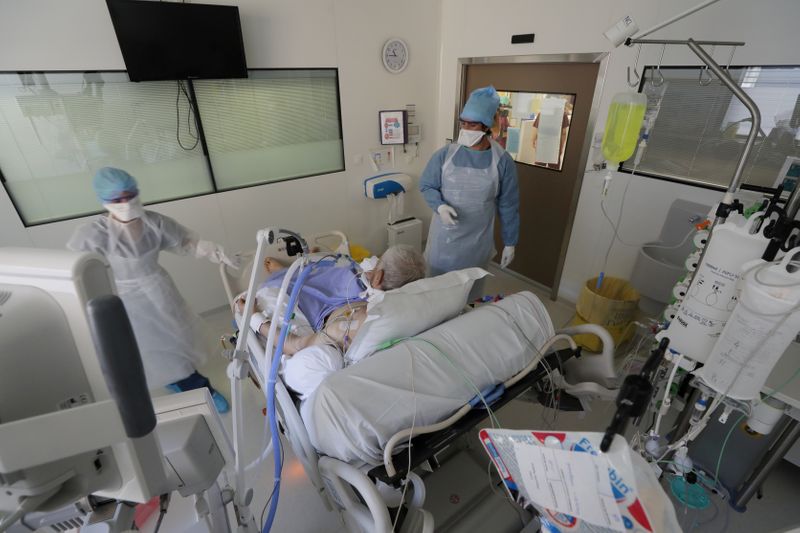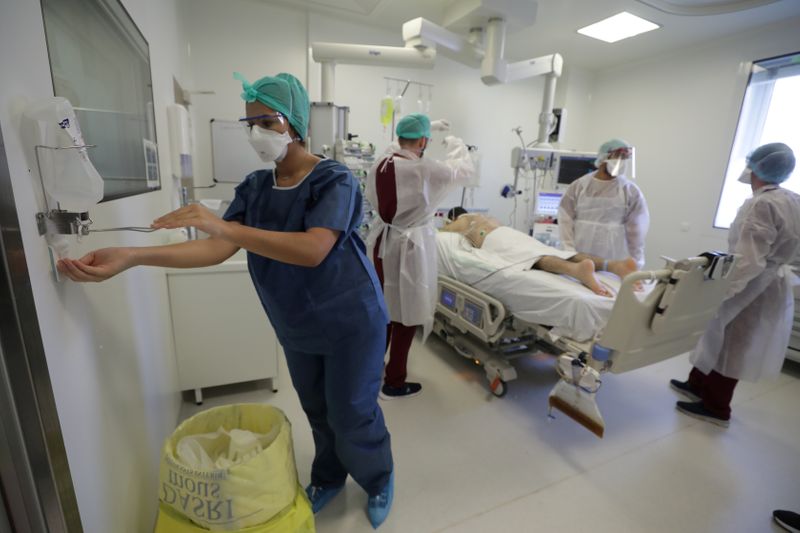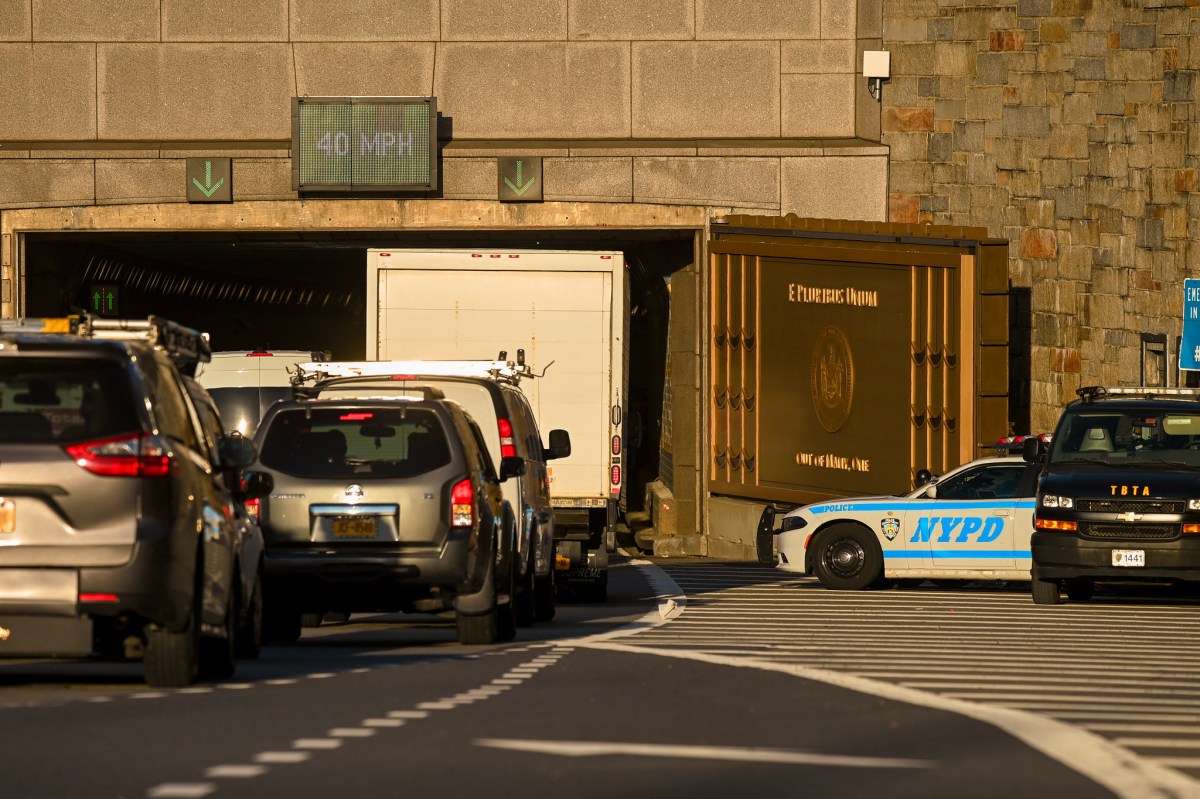MARSEILLE/PARIS (Reuters) – Each day this week, Professor Dominique Rossi has convened a coronavirus crisis group as intensive care wards in hospitals in Marseille fill up after a summer lull, deciding on how best to distribute beds and find extra staff.
With 95% of the southern Bouche du Rhone region’s 80 intensive care beds set aside for COVID-19 patients now occupied, Rossi has dusted off his peak-pandemic playbook to deal with a jump in patients at the epicentre of the coronavirus’ resurgence in France.
“We’re back to the working routine we adopted in April,” Rossi, a urologist who heads the Marseille Hospitals’ Medical Commission, told Reuters.
France has seen one of the sharpest accelerations in new coronavirus infections in Western Europe since mid-July.
The Bouche du Rhone registered a positivity rate – the rate at which tests show an infection – of 14.2% on Wednesday, more than double the national rate. Health officials say a rate below 5% demonstrates control over the spread of the virus.
After eight months of treating COVID patients, doctors are refining treatments. They are taking longer to move the sick into intensive care, and longer to intubate them, Rossi said.
But that’s not stopping Marseille’s wards from filling up. At the semi-private Hopital Europeen, head of intensive care Thomas Signouret said half of his unit’s 20 beds are dedicated to COVID-19 patients, and eight are already occupied.
Signouret said he could increase capacity for COVID sufferers by reducing the number of non-COVID beds, impeding efforts to catch up on a backlog of procedures delayed from the spring. But right now he faces a staffing crunch.
“Our biggest problem right now is finding the additional staff,” Signouret said, pausing from his shift. “We don’t have the numbers.”
SLOWER SPREAD, STILL DANGEROUS
France, like neighbouring Spain, has registered new record numbers of daily infections.
But epidemiologists say increased testing – France is now conducting about 1 million tests per week, five times more than in April – skews the numbers and that the virus is spreading more slowly than in the spring.
Arnaud Fontanet, who sits on the scientific council advising the government’s crisis response, said new cases nationally were doubling every 14 days compared with every 3.5 days in March.
That did not leave room for complacency, he said, urging a swift toughening of restrictions in localised hotspots. The government is to discuss on Friday whether to impose local lockdowns. [nL8N2G718Y]
Intensive care admissions and deaths had remained low in France for several weeks after cases began to increase in the summer. Both are now rising, even if still well below first wave highs.
The number of people taken to hospital for the disease climbed on Wednesday for an 11th day but total hospitalisations for the disease are still more than six times below the April 14 peak of over 32,000. The number of patients in ICUs (599) is far below the April 8 record of 7,148.
Epidemiologists say the lower numbers in hospital are because the virus is mainly circulating among young people, who often show no symptoms and are less vulnerable because they have fewer underlying health issues than the elderly.
But if the virus continues to regain momentum through the autumn, it will become harder to protect the elderly.
At the Les Figuiers care home near Nice, staff using public transport must shower on arrival and all employees face twice-daily temperature checks. Plexi-glass screens separating residents and visitors have been reinstalled and protective gear stocks built up.
Care home operators and the health authorities say lessons have been learned from early in the first wave, when they suffered shortages of face masks and sick staff and visitors were often entering without checks.
“If we don’t let the virus in, we won’t have to lock down our residents,” said Les Figuiers’ director, Anne-Helene Perlo.
But the danger persists. Last weekend, more than 50 residents and staff tested positive in a single 75-bed nursing home in southern France.
(Reporting by Eric Gaillard in Marseille and Richard Lough in Paris; Editing by Mike Collett-White)





















